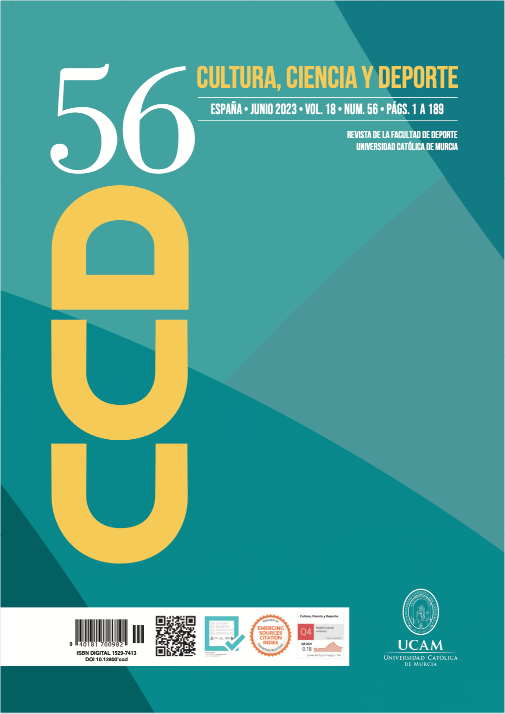Work autonomy as a predictor of hardy personality and motivation in sport facilitators
DOI:
https://doi.org/10.12800/ccd.v18i56.1975Abstract
This paper studies the predictive capacity of autonomy at work and the resilient personality of sports professionals on their motivation-effort. The sample is made up of 112 sports facilitators from Extremadura. The Occupational Resilience Questionnaire and the Multidimensional Organisational Climate Scale are used.
The results show that autonomy in their professional work does not correlate in the same way with the components of the resilient personality. While its relationship is strongest on control (β=.49) and challenge (β=.32); it is weakest on the most social quality of the resilient personality, commitment (β=.04). However, it is this social quality (commitment) that most predicts motivation and effort (β=.69). The coefficient of determination (R2=.54) indicates that autonomy and resilient personality predict 54% of the variance of engagement. The model predicts 24 % (R2=.24) of the variance of motivation and effort and represents that autonomy at work offers its strongest predictive influence on motivation and effort when it is realised through the control and commitment of the resilient personality; that is, when professionals combine the quality of self-confidence to change the environment with the social skills to relate.
Published
How to Cite
Issue
Section
License
Copyright (c) 2023 Creative Commons Attribution License

This work is licensed under a Creative Commons Attribution-NonCommercial-ShareAlike 4.0 International License.
The authors who publish in this journal agree with the following terms:
- The authors retain the copyright and guarantee the journal the right to be the first publication of the work as well as licensed under a Creative Commons Attribution License that allows others to share the work with recognition of the authorship of the work and the initial publication in this journal.













